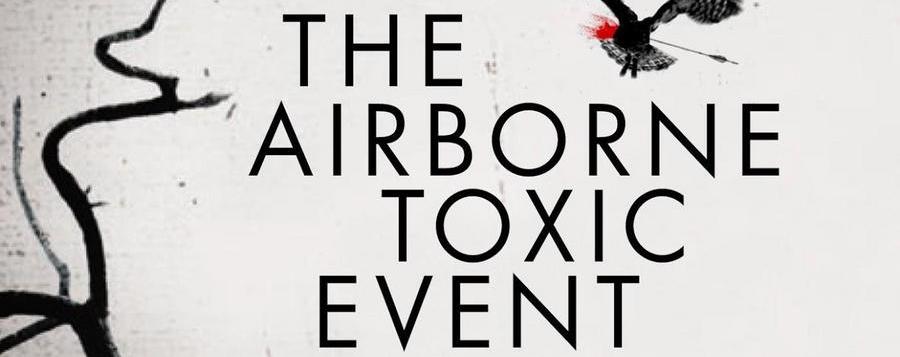Some songs are praised for their wide range of possible interpretations, the many ways in which they speak to different people, while others have a more straight-forward and singular lyrical presentation. The Airborne Toxic Event’s 2008 hit “Sometime Around Midnight” is firmly in the latter category, and I think the song presents a scene and scenario every effectively, to the point where the lyrics on their own could stand up as a short story.
In large strokes, the song details the singer’s experience standing in a bar, having his emotions throttled by a the presence of a former lover – one who pointedly goes home with someone else – leaving him to wander the streets in a self-destructive, drunken haze. It would be easy for me to simply quote the entire song and say “QED” to my point, because I think most people’s interpretation or takeaway from the song would be similar to my own. Note that I’m intentionally not reviewing the music of the song, which swings between haunting and driving in time with the changing lyrical tone, because while I think it serves the whole production well, what most captures my attention is the clarity and simplicity of the lyrics.
And it starts
Sometime around midnight
Or at least that’s when
You lose yourself
For a minute or two
At first read it may seem like the opening lines are a simple and straightforward “set the scene” stanza, but I absolutely love how the songwriter captures the sense of distraction – we’ve all had those moments where we re-check the time because we can’t remember what the clock just said a moment before, or how some events – a sight, a conversation, something else – can make the rest of the world fall away. All references to time in this stanza are vague, initiating and contributing to the dreamlike, ephemeral quality of the rest of the piece.
And the band plays some song
About forgetting yourself for a while
The second stanza reinforces this idea, but starts to sharpen its focus. Immediately after these lines the song’s subject is introduced, the woman from the singer’s past that continues to hold his attention and interest, the hope that history will repeat itself. She’s said to be wearing an alluring white dress which couples expertly with a later line about seeing a ghost.
The next two stanzas swell with emotions for the woman as she approaches the singer. Memories “come rushing like feral waves,” which I think is a particularly vivid and appropriate way to describe the onslaught of a weighty history surging unexpectedly. All she does is ask how the singer is doing and he’s caught in a torrent of longing for what they once shared.
And she leaves
With someone you don’t know
But she makes sure you saw her
She looks right at you and bolts
I think the listener’s reaction to the above lines is largely shaded by their own personal experiences, and of the people I’ve asked most have fallen into two groups: either they take the singer at his word and the woman intentionally causes him distress by spinning him up and leaving him behind, or they see the singer projecting hostile motives on someone else. How often have people either misidentified or misinterpreted another’s motives, particularly when “lost in the haze of the wine?” How often do we each of us project our own fears and misgivings on what others say, regardless of their true intent?
From here the singer describes wandering out into the night, drunkenly calling after her, ignorant or at least uncaring of the spectacle he’s making. Like Stanley calling out “Stella” to a disapproving world, he pines for someone – or more appropriately something, being the relationship or the encounter – that he can’t have.
You just have to see her
And you know that she’ll break you in two
Is the woman a destructive influence in his life, or is he self-destructing of his own accord, his fascination or obsession with her the cause of his ruin? Depending on the listener’s perspective, perhaps this is a song about grief and the inability to move on after a relationship. Perhaps it’s an example of seeing the world through darkened or pessimism-rimmed glasses, offloading personal feelings and failings onto others, whether or not they deserve that burden. Perhaps it’s just a man wanting a taste of a love he once knew.
I have found that most people, myself included, default to taking the singer at his word, seeing the scenario through his eyes. Like a story with an unreliable narrator however, other possibilities of how, why, and what start creeping in. I started off this review by saying that the lyrics could stand on their own as a short story, a moment (or more accurately, a flood of emotions) caught in time, and I genuinely appreciate the skill with which the narrative has been presented.
Admittedly I haven’t heard anything else by the Airborne Toxic Event – and what a name that is – but I sincerely hope that other songs, not just the singles and hits, have the same depth to them that “Sometime Around Midnight” contains, upon close examination.


![[HRM] Dead Poets Society](https://poeticsonline.net/wp-content/uploads/2018/10/img_6207-440x264.jpg)










